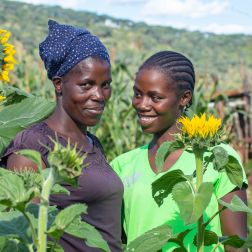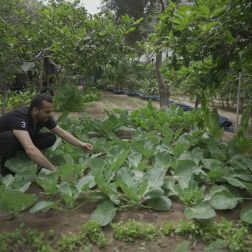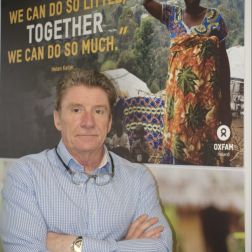- 9 mins read time
- Published: 16th December 2021
Fighting Wildfires - South Africa
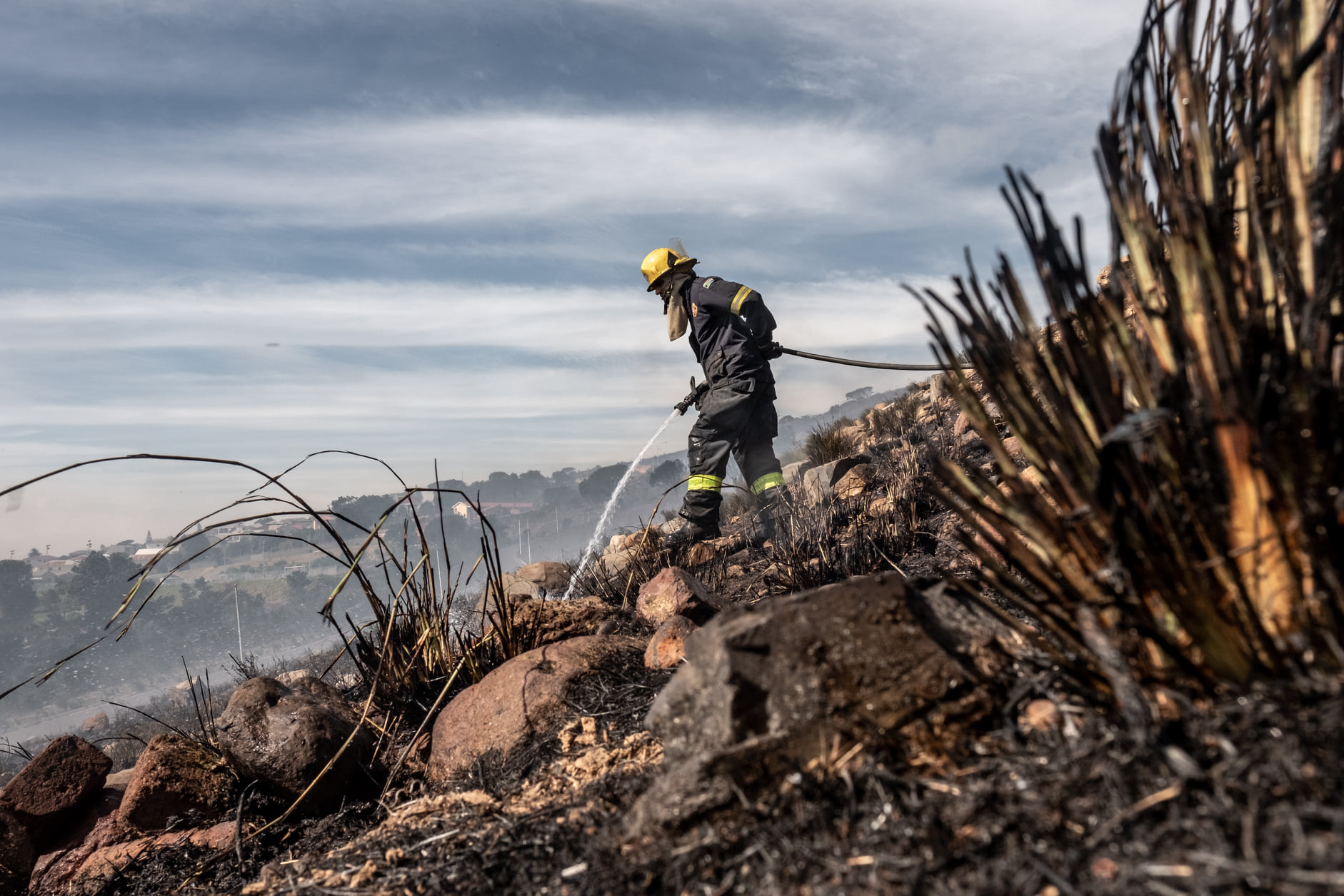
Wildfires are a naturally occurring phenomenon in South Africa's Western Cape province, and play an important role in regulating local ecosystems. Yet experts say changing weather patterns are making these fires more frequent and harder to control. In April 2021, a fire erupted on the side of Table Mountain in Cape Town and burned for several days, destroying buildings and prompting mass evacuations before finally being brought under control by hundreds of firefighters and volunteers. On the day it began, some weather stations showed temperatures up to 17 degrees higher than average. Over the past six decades, temperatures in Cape Town have been steadily rising, and rainfall becoming more erratic. Among those on the frontline during the fight to control the Table Mountain wildfire was Faith Bacela, a young firefighter with Working on Fire, a government funded job-creation initiative that recruits unemployed youth from marginalised communities and trains them to fight fires.
Faith Bacela, 25, firefighter
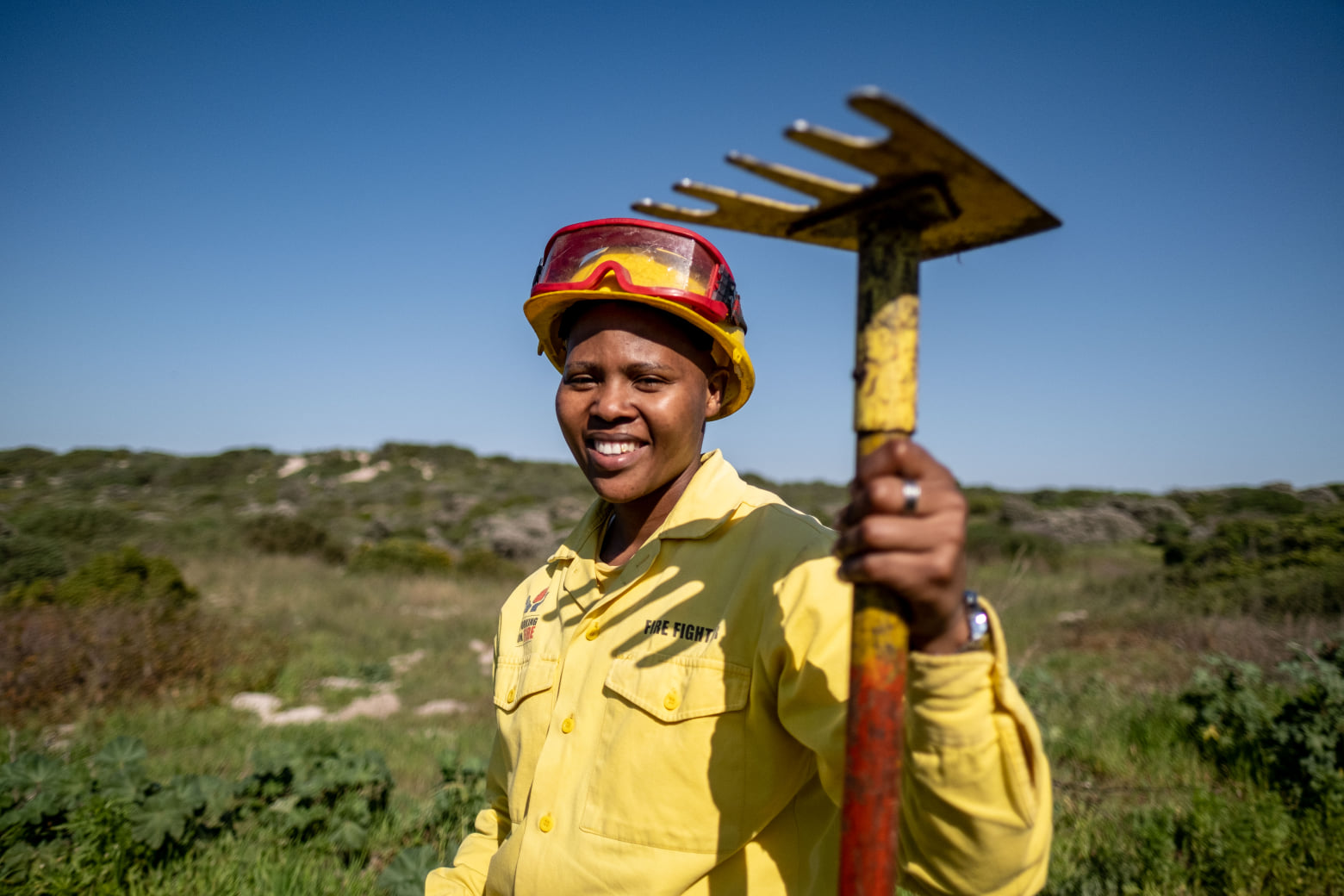
My name is Faith Bacela. I was born in 1995, 1st of August and I grew up in Cape Town. One of my hobbies which I do, I play football for a living, besides work. I work for a company called Working On Fire. At Working on Fire we protect environments and stop fires on the mountain, mostly field forest fires.
I started working with Working on Fire in 2016, November. So when we started here, they called us, then they explained how the process is going to go. Firstly they take us for a fitness test. If you pass the fitness test they take you for an interview. So from there they prepare you for like a week or two weeks. Then they take you to the main academy which is in a different province, which is in Nelspruit. So in Nelspruit we get trained there for like 25 days. So the training is mostly based on the having discipline and keeping your body fit enough for climbing mountains and we do some group marches to stay fit.
One of the main things for the job that we have to do is stop the fires from the mountains and damaging properties. Protecting animals as well. Fires are very very common because Cape Town is split in many ways, because Cape Town is a big province. So from Cape Town we do travel and go to other provinces, but mostly since Cape Town is a very big city, we are split in different bases, which if ever that current area has a fire that needs to be attended at a certain base nearby, then that base goes there. And then if ever they need any help, then they reach out to our base. So we connect all together and we work all together at stopping fires. The fires mostly become a problem in summer because the ground becomes very dry.
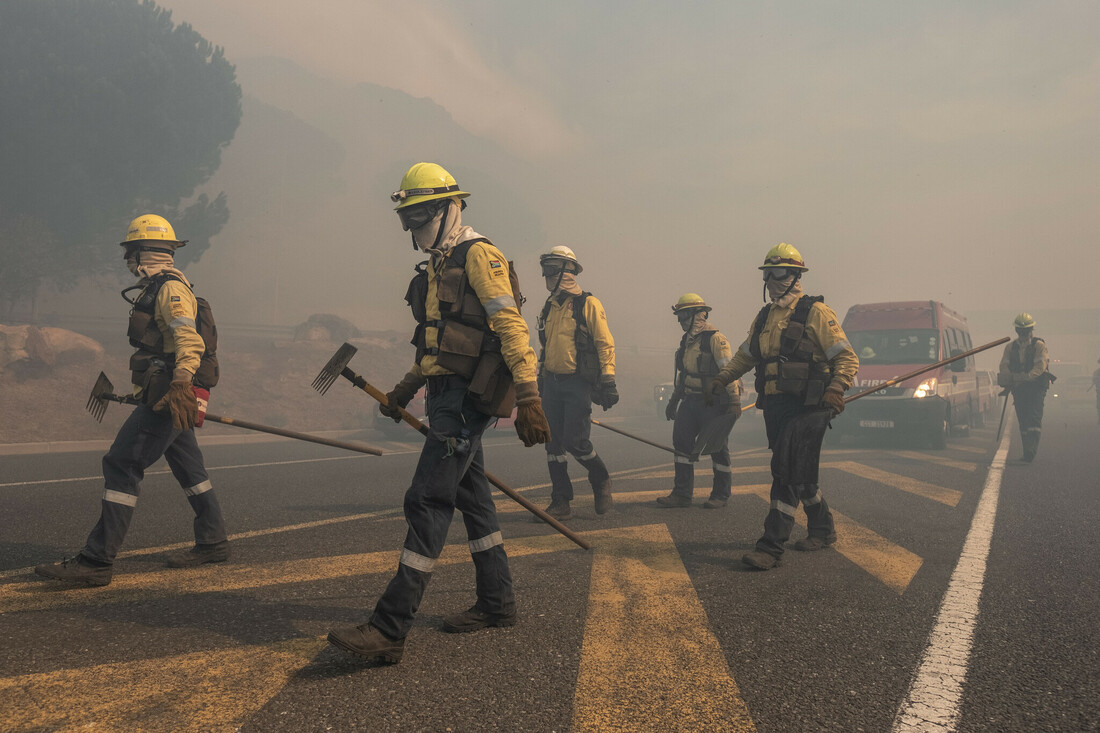
Our fire season starts round about December, then it goes further till January, till the end of April. That’s when the team starts getting more prepared for the fires because that when we’re entering the whole fire season where we know and we’re aware that we’ll be facing many fires in fire season. There are always fires, every year. I think there are less fires because most places that burnt previously for example in Knysna and George, they burnt a lot. Now that the ground has burnt, the crops and stuff can’t grow. A burnt area can’t burn again because its damaged, so the fires no longer interested in that damaged area.
I can tell you about our December month when it's mostly busy. Everybody's preparing for Christmas Eve and stuff. But us firefighters, we know we have to be here on standby for eight hours a day. And we just stay prepared with a water bottle, in your bag ready. And your fire gear is ready and tools sharpened and set in one place. And we just remain calm and wait for any fire call. So if any fire call reaches out, then we know we have to go attend immediately. We all grab our stuff and everything, every tool’s supposed to be inside the truck already, then we hop in our fire trucks and then we go out in the fire.
Sometimes it's exciting. And sometimes we are nervous, because fires are different, there are huge fires. There are fires that we can maintain within a few hours, I can say, then there are huge fires which could take maybe a month, us trying to stop the fire. So I would say the most fires that makes us nervous are the fires that mostly take long to be extinguished, because we don't know what could happen. So everything changes every day.
My role at the recent Table Mountain fire was, I as a SHE (safety) rep, I have to make sure that everybody has their fire gear on, their helmets on and their visors which are operating well. And everybody's wearing their goggles properly and their gloves well. Like they don't have any open spaces for when they are touching the tools and hurting themselves. So I follow after my crew leader, one of the supervisors, then we look for any danger spots, to go back to the team and alert them that please be aware of something like that and like that in such an area.
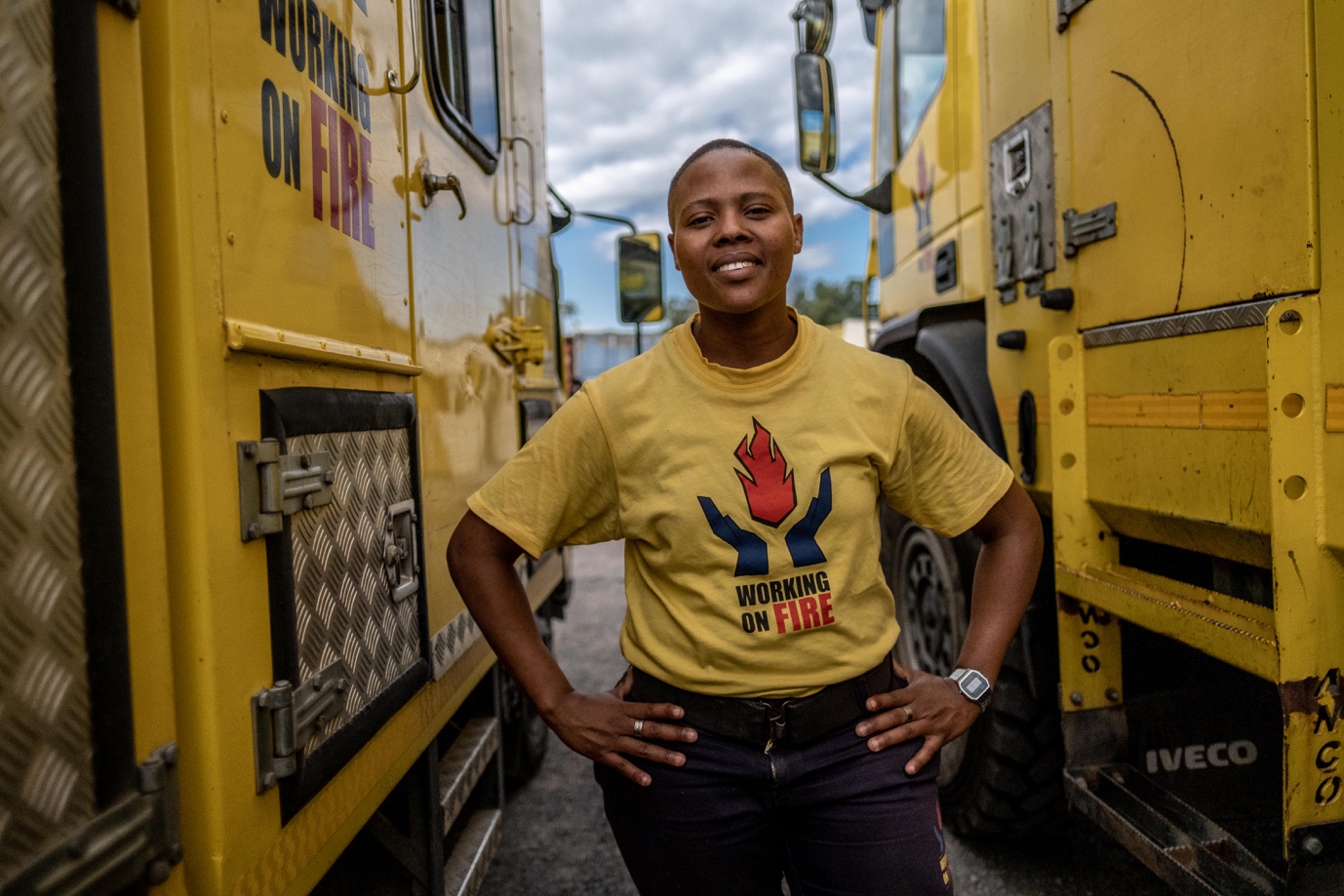
I do worry about my safety sometimes but one thing I love about the company is that they put our safety first. So, every time that we’re fighting fires, we always put our safety first. I’m doing the job, wishing in the future I can train more trainees that could be recruited in the company. And I see myself going further in the company, which, I guess I really love my job.
If we wouldn’t be doing this kind of kind of job then I think many houses would be damaged and the fires could damage many properties and many animals would be in danger as well. That would be very sad for the country. Sometimes the fires claim people's lives because some people if they see, or try to take their belongings inside the house, then the fire coming up very fast for them. Then the people get trapped inside sometimes and the fire then traps the people inside the houses so it’s be too late for them to go out. If the climate gets hotter in the future, I really think there’ll be more fires, even in winter because we mostly focus on our fire seasons which are around five months.
How it feels when you’re attending big fires; sometimes you feel nervous but along the day you become okay, because you're already used to it, that you must remain calm and maybe you’re just there with the team, you can hear birds, you can hear the smell of the trees and how the nature is, because we always working on top of the mountain, most of the time. When we’re dealing with the most dangerous fires, there are times that we get trapped by the thick smoke, by which we can’t get any way of moving through, or seeing anyone, so what we normally do is just try and pat on somebody’s back and you both go down with your visor closed. Then remain calm and just wait for the smoke to clear out for you to move.
However, if we are trapped in the fire, we know we have to open a three metre wide fire break. Then you remain in the middle because that area hasn’t been burnt yet, or you go to areas that have been burnt because the fire won’t go there because the areas already burnt. So, we just stay there till the fire clears out, then we start working again. Ordinary people could prevent fires by looking out for small children with boxes of matches or playing with them, watch out for candles nearby and make sure that they place them in the proper places to not make any damage from the small fires. And they could be aware of the broken glass that could make any reflections from the sun, that could also start the fire in the mountains. And for the camping people that leave fires on, they should make sure that they extinguish the fire with either the sand or water and they can leave the area clear. If not, the fire could start by spreading out, doing plenty damages on the area.
I would say people are now realising about climate change because even factories, they’re made better. Better ways, I'd say of doing their stuff because they make different stuff for the smokes to not affect the environment. And the people that used to damage the environment and the air pollution and stuff. They’re no longer doing it I’d say, because the people are preventing them from it. Many people become very surprised that I’m a female firefighter, and some of them become very shocked because they see I’m very young. They say, ‘This lady is very young to be a firefighter’ and they sometimes think of the risky job that I have applied for. They come to me which they ask questions like ‘how's the job?’ and ‘what are the dangers?’, ‘aren't you scared for when the fire is coming along?’.
There was a purpose at the job when they sent me for a training. I came back and which I have a lot of knowledge now of working along with the fires, different fires, which are mostly high fires and the low fires and stuff. So I’m well trained now. So I explain to them then they get to understand. Most men do ask me why I did apply for the job because they think the job is mostly made for male fire fighters, which they've got that wrong, because all females have the same powers as the males, as well. We’re all human beings in the end.
This project was funded by the European Union
